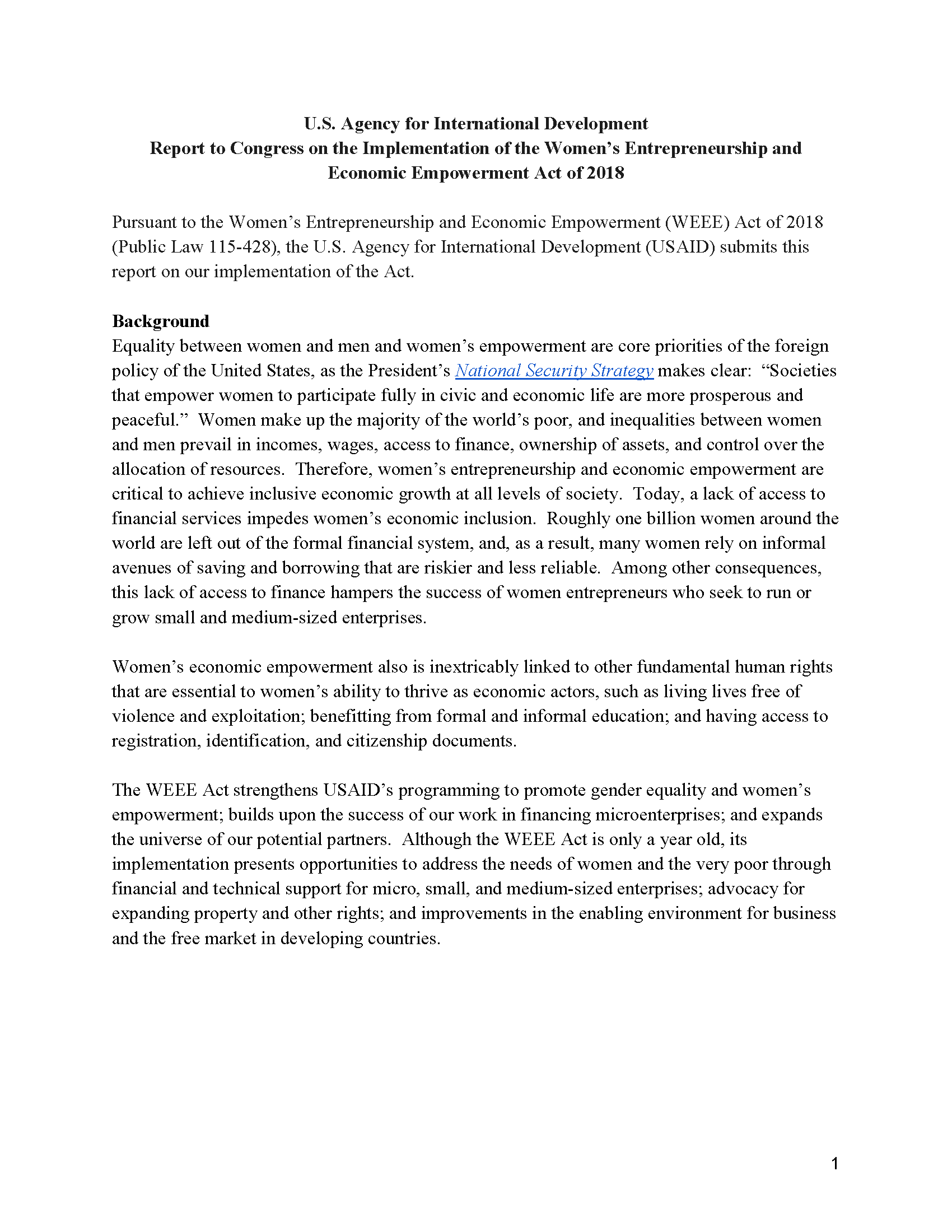Speeches Shim
Pursuant to the Women’s Entrepreneurship and Economic Empowerment (WEEE) Act of 2018 (Public Law 115-428), the U.S. Agency for International Development (USAID) submits this report on our implementation of the Act.
Background
Equality between women and men and women’s empowerment are core priorities of the foreign policy of the United States, as the President’s National Security Strategy makes clear: “Societies that empower women to participate fully in civic and economic life are more prosperous and peaceful.” Women make up the majority of the world’s poor, and inequalities between women and men prevail in incomes, wages, access to finance, ownership of assets, and control over the allocation of resources. Therefore, women’s entrepreneurship and economic empowerment are critical to achieve inclusive economic growth at all levels of society. Today, a lack of access to financial services impedes women’s economic inclusion. Roughly one billion women around the world are left out of the formal financial system, and, as a result, many women rely on informal avenues of saving and borrowing that are riskier and less reliable. Among other consequences, this lack of access to finance hampers the success of women entrepreneurs who seek to run or grow small and medium-sized enterprises.
Women’s economic empowerment also is inextricably linked to other fundamental human rights that are essential to women’s ability to thrive as economic actors, such as living lives free of violence and exploitation; benefitting from formal and informal education; and having access to registration, identification, and citizenship documents.
The WEEE Act strengthens USAID’s programming to promote gender equality and women’s empowerment; builds upon the success of our work in financing microenterprises; and expands the universe of our potential partners. Although the WEEE Act is only a year old, its implementation presents opportunities to address the needs of women and the very poor through financial and technical support for micro, small, and medium-sized enterprises; advocacy for expanding property and other rights; and improvements in the enabling environment for business and the free market in developing countries.


Comment
Make a general inquiry or suggest an improvement.